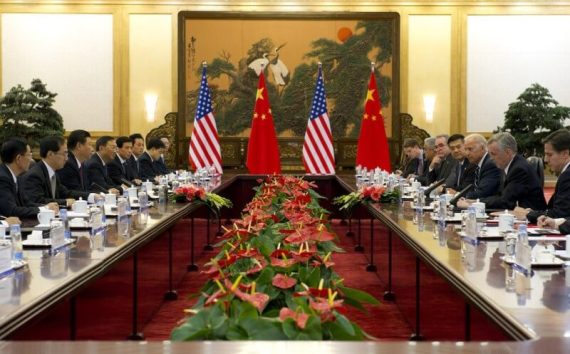C
hina and the United States are slated to hold discussions on nuclear arms control next week, marking the first such dialogue since the Obama administration, according to a report from the Wall Street Journal.
The announcement comes after Foreign Minister Wang Yi’s recent visit to Washington. Officials from both nations have revealed that consultations on arms control and non-proliferation will be undertaken in the following days, with additional discussions on maritime affairs and other related topics.
Senior State Department official Mallory Stewart and Sun Xiaobo, head of the arms-control department at China’s foreign ministry, will spearhead the arms talks. As of now, neither the U.S. State Department nor China’s embassy in Washington has commented on the specifics regarding the format or timing of these discussions.
Strategic stability
In 2021, U.S. National Security Advisor Jake Sullivan noted that both the Chinese and U.S. presidents had expressed their intent to continue discussions on “strategic stability”. This emphasis arose due to increasing concerns in Washington about Beijing’s expansion of its nuclear weapons capacity. However, the White House was prompt in clarifying that these conversations would not mimic the formal arms reduction talks previously held with Russia.
Interestingly, despite the collaborative tone, U.S. officials have, in the past, expressed their disappointment over China’s seeming disinterest in proactive discussions to mitigate nuclear weapons risks. As per Pentagon data from October, China is believed to have over 500 operational nuclear warheads and might possess over 1,000 warheads by 2030. This assertion has been countered by Beijing, stating that the U.S. already has a substantially larger arsenal.
In response to these figures, Beijing has countered by pointing out the extensive nuclear arsenal of the United States. Chinese officials have long maintained the stance that the U.S. holds a substantially larger and more formidable collection of nuclear weapons in comparison to China’s arsenal.
The implications of these revelations are substantial, further emphasizing the nuclear capabilities divide and the race for nuclear superiority between two of the world’s most influential powers. The disclosure comes amidst growing tensions and calls for arms control talks between the two nations.
Strained relations between the two global powers
The upcoming arms discussion is anticipated to precede a significant meeting between U.S. President Joe Biden and Chinese President Xi Jinping in San Francisco later in November. While the overarching agenda is yet to be fully fleshed out, a representative from the Biden administration acknowledged that vital details are currently in the works.
This move towards dialogue is seen as a part of the broader effort to restore strained diplomatic relations between the two global powers, especially in light of incidents such as the U.S. downing of a suspected Chinese spy balloon earlier this year.
Daryl Kimball, the executive director of the Washington-based Arms Control Association, opined that the discussions would potentially center on promoting a more transparent understanding of each nation’s nuclear doctrines and bolstering effective crisis communication channels. Kimball, however, cautioned against expecting immediate significant outcomes, emphasizing that real progress would necessitate mutual compromise and patience.
Sources: South China Morning Post and Reuters
Recommended





